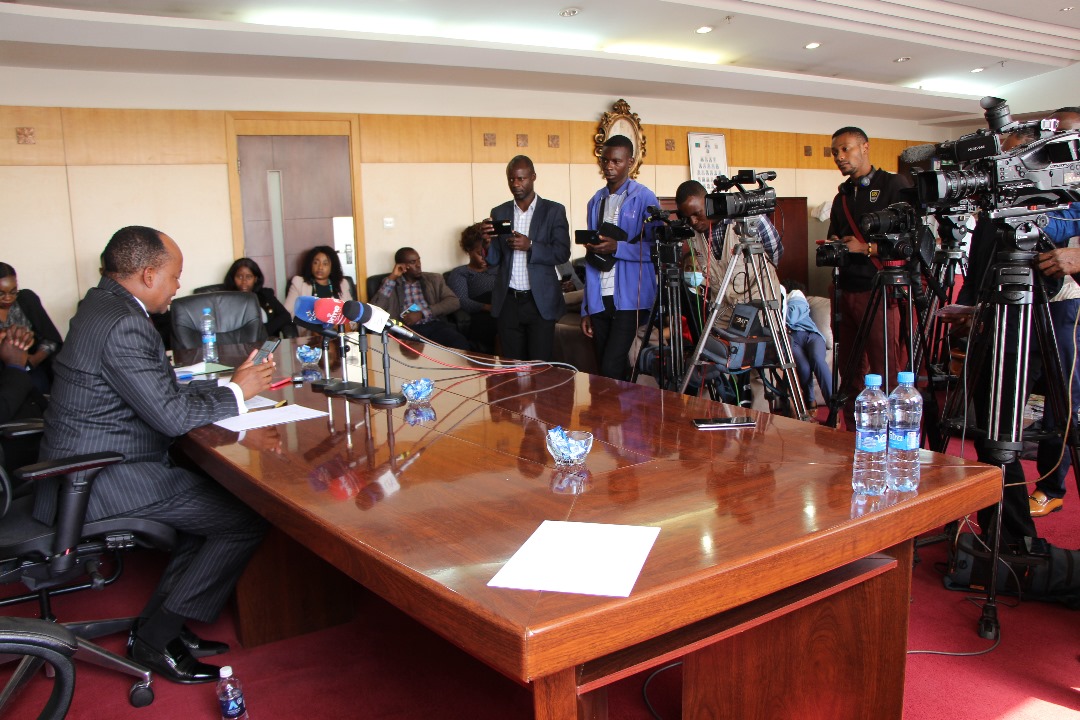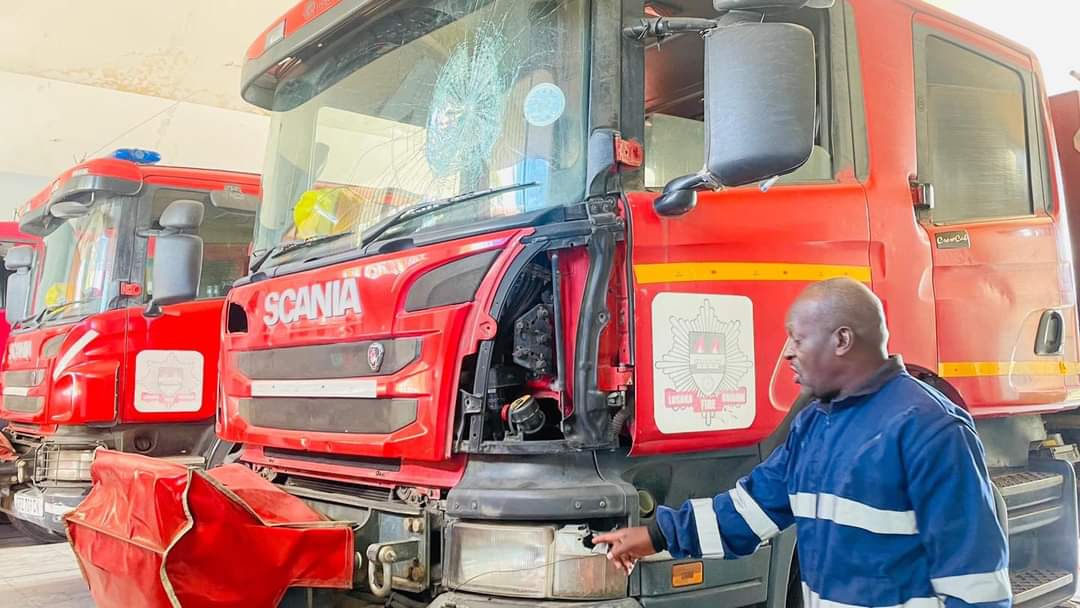The President of the Republic of Zambia, Mr. Hakainde Hichilema, called for the 14th Cabinet Meeting on Monday, 15th July, 2024, at State House, to deliberate on policy and legislative matters aimed at facilitating national socio-economic development, in line with the general broad development Agenda for the New Dawn Government.
The following were the decisions made:
1. Declaration of Golden Baobab Multi-Facility Economic Zone in Kafue District.
Cabinet approved the creation of a Multi-Facility Economic Zone (MFEZ) in Kafue District in Lusaka Province.
The declaration of the MFEZ and subsequent development of backbone infrastructure in the newly approved Kafue MFEZ, will act as a catalyst for the attraction of up to US$ 300 million worth of investment, create more than 2,000 new jobs in the local community at full capacity, and generate tax revenue for the Government. This will further help transform an idle part of Kafue district into a manufacturing hub attracting quality enterprises in manufacturing of assortment of products with an eye to the export markets.
Cabinet has a firm belief that the development of the Kafue MFEZ has the potential of transforming the economic landscape of Kafue district, once an economic giant, by fostering economic diversification, skills development, job and wealth creation and revenue generation for government.
2. Legislation Matters:
(a) The Civil Aviation Authority (Amendment) Bill, 2024.
Cabinet approved for publication and introduction in Parliament, of a Bill entitled “The Civil Aviation Authority (Amendment) Bill, 2024. The objective of this Bill is to amend the Civil Aviation Authority Act, 2012, so as to, enhance civil aviation safety and security; provide clarity on the manner and form of applications for certificates and licenses in aviation; and provide for the transfer of the functions of the Civil Aviation Authority over a Zambian registered aircraft engaged in international navigation to a member state of the International Civil Aviation Organisation.
It has been observed that The Civil Aviation Authority Act, 2012 is inadequate as it does not provide structures for cross-border aviation transactions, and does not provide for mandatory provisions in Zambian airports, radio services, meteorological services and other air navigation facilities that facilitate international air navigation in accordance with the standards and recommended practices established from time to time.
(b) The Civil Aviation (Amendment) Bill, 2024.
Cabinet also approved for publication and introduction in Parliament, a Bill entitled “The Civil Aviation (Amendment) Bill, 2024. The object of this Bill is to amend the Civil Aviation Act, No. 5 of 2016, so as to enhance civil aviation safety.
The current Act is inadequate in dealing with certain aspects of civil aviation safety, including provision of adequate functions to enable the Aircraft Accident Investigation Board to investigate civil aircraft accidents and serious aircraft incidents.
Cabinet has also decided that it is important for the country to fully comply with the Chicago Convention and the International Civil Aviation Organisation (ICAO) standards and recommended practices (SRPs) through the two civil aviation amendment Bills.
(c) The National Health Research and Training Institute Bill, 2024.
In the area of health, Cabinet approved for publication and introduction in Parliament, a Bill entitled “The National Health Research and Training Institute Bill, 2024.
The objectives of this Bill are to continue the existence of the Tropical Diseases Research Centre and rename it as the National Health Research and Training Institute and redefine its functions; provide for health research and training; provide for the establishment of the National Health Research Laboratory; and provide for research in indigenous knowledge, and traditional, complementary and alternative medicines.
Cabinet has realised that The Tropical Diseases Research Centre Act, Cap. 301 of the Laws of Zambia, is inadequate in supporting the Tropical Diseases Research Centre’s expanded mandate and the changing needs of the country.
(d) The Zambia National Public Health Institute (Amendment) Bill, 2024.
Cabinet also approved for publication and introduction in Parliament, a Bill entitled “The Zambia National Public Health Institute (Amendment) Bill, 2024.” The objective of this Bill is to amend the Zambia National Public Health Institute Act, 2020, so as to revise the functions of the Zambia National Public Health Institute.
The amendment to the Zambia National Public Health Institute Act, 2020, has been necessitated by the proposed National Health Research and Training Institute Bill, 2024, that seeks to repeal and replace the Tropical Diseases Research Centre Act, Cap. 301, and vest the mandate to conduct public health research in general, in the National Health Research and Training Institute.
It has been observed that the Zambia National Public Health Institute Act, 2020, in its current state, gives the Zambia National Public Health Institute the mandate to conduct public health research and, therefore, to ensure consistency on the Statute Book there is need to amend the Act.
(e) The Zambia Medicines and Medical Supplies Agency (Amendment) Bill, 2024.
Cabinet also approved for publication and introduction in Parliament a Bill entitled “The Zambia Medicines and Medical Supplies Agency (Amendment) Bill, 2024.” The objective of this Bill is to amend the Zambia Medicines and Medical Supplies Agency Act, 2019 so as to re-define the issue of medical supplies and provide for emergency procurement, storage and distribution of medicines and medical supplies.
Therefore, there is need to amend the Zambia Medicines and Medical Supplies Agency Act, 2019, in order to enhance the efficiency in the implementation of procuring, storing and distributing of medicines and medical supplies in the country
by streamlining the functions of the Zambia Medicines and Medical Supplies Agency.
The proposed Bill, once enacted, will enable the Zambia Medicines and Medical Supplies Agency to be responsible for the procurement, storage and distribution of medical supplies, in an efficient manner. Furthermore, the Bill, once enacted, will enable the emergency procurement, storage and distribution of medicines and medical supplies during a public health emergency.
(f) The Health Professions Bill, 2024.
Another Bill approved for publication and introduction in Parliament is “The Health Professions Bill, 2024.”
The objectives of this Bill are to, continue the existence of the Health Professions Council of Zambia and redefine its functions; re-constitute the Board of the Health Professions Council of Zambia and redefine its functions; regulate health professionals, health facilities, health care services and internship sites; provide for the administration of licensure examinations; approve the curriculum for health learning programmes for the purposes of accreditation by the Higher Education Authority; and provide for the approval of internship sites for health practitioners.
Cabinet has realised that the Health Professions Act No. 24 of 2009, is inadequate in regulating health practitioners and health facilities in the country, and that there is need, therefore, that the law responds to the ever-evolving environment, be in line with international best practices, and also ensuring that the country has competent and qualified health practitioners, including the provision of quality health care services.
(g) The Kazungula Bridge Authority Bill, 2024.
Cabinet also approved for publication and introduction in Parliament of a Bill entitled “The Kazungula Bridge Authority Bill, 2024.” The objective of this Bill is to give effect to the Agreement relating to the establishment of the Kazungula Bridge Authority made between the Government of the Republic of Zambia and the Government of the Republic of Botswana.
The Kazungula Bridge Authority Bill, 2024, once enacted, will define the scope and purpose of the Authority which shall be to exercise the contracting parties’ right of ownership of the bridge infrastructure and to advise the contracting parties on the
most appropriate arrangement to ensure that the bridge functions as a link between the respective transport systems.
(h) The National Forensic (Amendment) Bill, 2024.
Cabinet, further approved in principle, to the introduction of a Bill in Parliament to amend the National Forensic Act No. 2 of 2020, in order to broaden the mandate of the National Forensic Authority, so as to encompass both clinical forensic medicine and forensic pathology; revise the definitions of Forensic Analyst and Forensic Pathologist, as well as the qualifications of the Forensic Analyst and Forensic Pathologist.
Cabinet has observed that currently, the National Forensic Act, does not provide powers to the National Forensic Authority to regulate forensic medicine in Zambia. In addition, the Act limits the competence to testify as an expert witness to those with academic qualifications at postgraduate level.
Therefore, amending the Act will address the issue of qualifications, provide for the establishment and management of the National Forensic Database, as well as ensure that all forensic service providers are regulated by the National Forensic Authority and all other relevant State institutions in Zambia.
(i) The Customs and Excise (General) (Amendment) Regulations, 2024.
Cabinet also approved the Customs and Excise (General) (Amendment) Regulations, 2024, a Statutory Instrument intended to domesticate the African Continental Free Trade Area (AfCFTA).
The Government of the Republic of Zambia signed the Agreement establishing the African Continental Free Trade Area on 10th February, 2019, and submitted the instruments of ratification to the African Union Commission on 5th February, 2021.
Although Zambia ratified the Agreement, implementation of the Agreement can only commence after its domestication, hence the approval by Cabinet for domestication. It is expected that through the AfCFTA, this will facilitate the increase in trade among African countries, stimulate production through the development of regional value chains, and strengthen the capacity of African companies to access and supply goods and services to the world market.
(j) The Customs and Excise (Suspension) (Wire Rod Coils) Regulations, 2024.
Cabinet also approved the Customs and Excise (Suspension) (Wire Rod Coils) Regulations, 2024, a Statutory Instrument intended to suspend surtax on imported wire rod coils. Wire rod coils are mainly imported for use as an input in the manufacture of steel products such as game wire and reinforcement of concrete in the manufacture of concrete-based structures such as street lighting poles.
Therefore, the removal of surtax on wire rod coils is generally intended to reduce the cost of input in the manufacture of steel products in the country.
(k) The Fisheries (Fisheries Prohibition) Regulations, 2024.
Another Statutory Instrument approved by Cabinet is on the declaration of the fishing ban on Lake Tanganyika, in order to allow for the resting period of fish that will ensure the natural regeneration of fish stocks, as well as promote sustainable management of fisheries resources.
The declaration of the fishing ban on Lake Tanganyika is imperative due to the necessity of long-term conservation, protection, management and sustainable use of the fisheries resources. Lake Tanganyika is internationally recognised as a global hotspot of biodiversity, representing some of the most diverse aquatic ecosystems in the world. The lake’s valuable aquatic ecosystem and the many natural resources found in its Basin provide essential sources of livelihood and income for over 10 million riparian population around the lake, and contribute to the growing economies of surrounding countries of The Republic of Burundi, Democratic Republic of Congo, United Republic of Tanzania and The Republic of Zambia.
3. National Water Policy.
Cabinet also approved the National Water Policy and its Implementation Plan.
The Policy aims at ensuring national water security and universal access to sanitation. It is also designed to enhance cross-sectoral water resources planning; resource mobilisation; equitable water allocation; harness water resources; accelerate attainment of universal access to water supply and sanitation; enhance legal and institutional frameworks and coordination mechanisms; and promote gender and social inclusion in the water sector.
4. Implementation of The Drought Response Plan.
In winding deliberation for the day, Cabinet took note of the information that generally, Government has continued providing food assistance to people in the drought affected communities in line with the Drought Response Plan. So far, 40,865 Metric Tons of White maize has been distributed to the 84 most affected districts, targeting the most vulnerable. Community sales of maize are also on-going and 71,252 Metric Tons have been sold to members of the public.
Further, Government has provided K392,187,650.50 in supplementary funding for the school feeding programme. In order to enhance food security, Government through the Food Reserve Agency, has accelerated the procurement of maize and has so far procured over 270,000 Metric tonnes from the early maize and the 2023/2024 harvest. The Government will import 650,000 Metric Tons of non-GMO white maize from Tanzania and the process of transporting the maize into the country is in progress.
In an effort to improve availability of water for households and economic activities in the drought affected areas, Government has started works to maintain and rehabilitate over 770 dams. More dams will be constructed. Further, drilling of boreholes and construction of new piped water schemes equipped with solar system is being accelerated.
To complement these efforts, Cabinet approved the implementation of a more than K2 billion Cash for Work (CFW) Programme that will help people to work on community projects and get paid in form of cash to enable them to buy food.
Cabinet has realised that despite the recent Government interventions to alleviate the lives of the drought-affected communities, a number of people still continue to experience high levels of vulnerability and are generally food insecure. Further, Cabinet has observed with greater concern that people living in urban areas have also been affected by increases in the price of mealie meal and other food items, leading to significant impacts on their cost of living.
Therefore, Cabinet has decided that the Cash-For-Work Programme, be immediately implemented as a short-term measure, for a period July to December, so as to empower individuals with cash to buy food items in exchange for their labour. The public works are expected to promote public health and mitigate disease outbreaks such as cholera by clearing drainages, improving community assets such as small rural bridges, and enhancing environment conservation through restoration activities.
This programme is aimed at complementing other social assistance programmes being implemented by the Government, such as the Social Cash Transfer Programme and the Emergency Social Cash Transfer Programme, as an additional response to the drought. It is in the interest of Cabinet to provide immediate financial relief to many beneficiary households so as to stimulate economic activity at the local community level country-wide.
Hon Cornelius Mweetwa, MP
MINISTER OF INFORMATION AND MEDIA AND CHIEF GOVERNMENT SPOKESPERSON
18th July, 2024






Hello there
I wanted to reach out and let you know about our new dog harness. It’s really easy to put on and take off – in just 2 seconds – and it’s personalized for each dog.
Plus, we offer a lifetime warranty so you can be sure your pet is always safe and stylish.
We’ve had a lot of success with it so far and I think your dog would love it.
Get yours today with 50% OFF: https://caredogbest.com
FREE Shipping – TODAY ONLY!
Best Wishes,
Leonida
Dear sir/madam,
Do you want to become a vendor/supplier/contractor of Lotos Oils? We are looking for a reliable, innovative and fair partner for 2024/2026 projects, tasks and contracts. Kindly indicate your interest by requesting a pre-qualification questionnaire. With this information, we will analyze whether you meet the minimum requirements to collaborate with us.
Best regards,
Petr Michal
Senior Vendor Coordinator Group Procurement
LOTOS OIL SP Z.O.O
Address Ul. 135 Elblaska Poland 80-718 Gdansk 80-718 PL.
Is your dog’s nails getting too long? If you’re tired of going to the vet or groomer to get them trimmed, why not try PawSafer™?
With PawSafer™, you can trim your dog’s nails from the comfort of your own home, and it only takes a few minutes!
PawSafer™ is the safest and most convenient way to trim your dog’s nails, and it’s very affordable.
Get it while it’s still 50% OFF + FREE Shipping
Buy here: https://pawsafer.net
The Best,
Georgina
Your expertise really shines through in this article. The practical tips and insights you’ve shared are going to be very useful for my work.